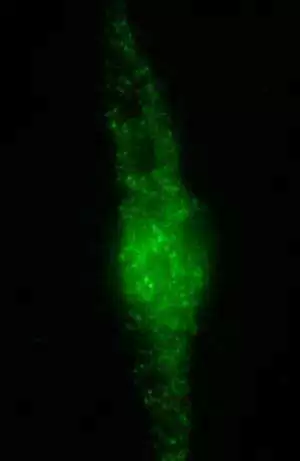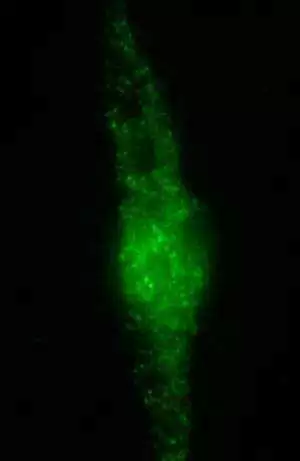
Celiac.com 10/29/2012 - Celiac disease with epilepsy and cerebral calcifications, also known as CEC, is a rare form of celiac disease that is accompanied by occipital epilepsy. Past studies have suggested that the neurological symptoms could be the result of a folate deficiency, as folate levels are typically low in patients suffering from CEC. However, a recent case report indicates that as with other neurological gluten-related diseases (such as gluten ataxia), there may be some correlation between CEC and TG6 autoantibodies, indicating that the disease is autoimmune in nature.
 The case study focuses on a four year old boy who suffered from 30+ minute long complex partial seizures every two to three days. He was given antiepileptic drugs (carbamazepine, sodium valproate, levetiracetam), but these only slightly helped reduce seizure frequency. After one year, MRI and CT scans revealed bilateral occipital calcifications over parieto-occipital regions of the brain. The patient also suffered from chronic diarrhea: endoscopy and biopsy confirmed villous atrophy and patient tested positive for antibodies associated with celiac disease. His folate levels were also markedly low.
The case study focuses on a four year old boy who suffered from 30+ minute long complex partial seizures every two to three days. He was given antiepileptic drugs (carbamazepine, sodium valproate, levetiracetam), but these only slightly helped reduce seizure frequency. After one year, MRI and CT scans revealed bilateral occipital calcifications over parieto-occipital regions of the brain. The patient also suffered from chronic diarrhea: endoscopy and biopsy confirmed villous atrophy and patient tested positive for antibodies associated with celiac disease. His folate levels were also markedly low.
Celiac.com Sponsor (A12):
After being placed on a gluten-free diet, the patient's symptoms, including seizures, cleared within two weeks. After the seizures had ceased, the patient was given folate supplements, and taken off antiepileptic drugs. Gluten challenge caused a relapse of all symptoms. At the time of the report, the patient had been gluten-free and seizure-free for 18 months, and showed improved behavior and reading and writing abilities.
Because the patient responded so well to gluten-free diet treatment before being given folate supplements and all symptoms resumed during gluten challenge, it would seem that the neurological symptoms of CEC are the result of immune mechanisms rather than vitamin deficiencies or malabsorption. Most CEC patients have low folate levels; folate deficiency was previously thought to play a causative role in the disease, but this case study brings that conclusion into question. Furthermore, the patient tested positive for TG6 autoantibodies, which are associated with gluten ataxia (another gluten-related disease with neurological symptoms, which are an autoimmune response).
More studies are required, but this case study suggests that gluten ataxia is not the only gluten-related disease with autoimmune neurological manifestations.
Source:
- Open Original Shared Link








Recommended Comments